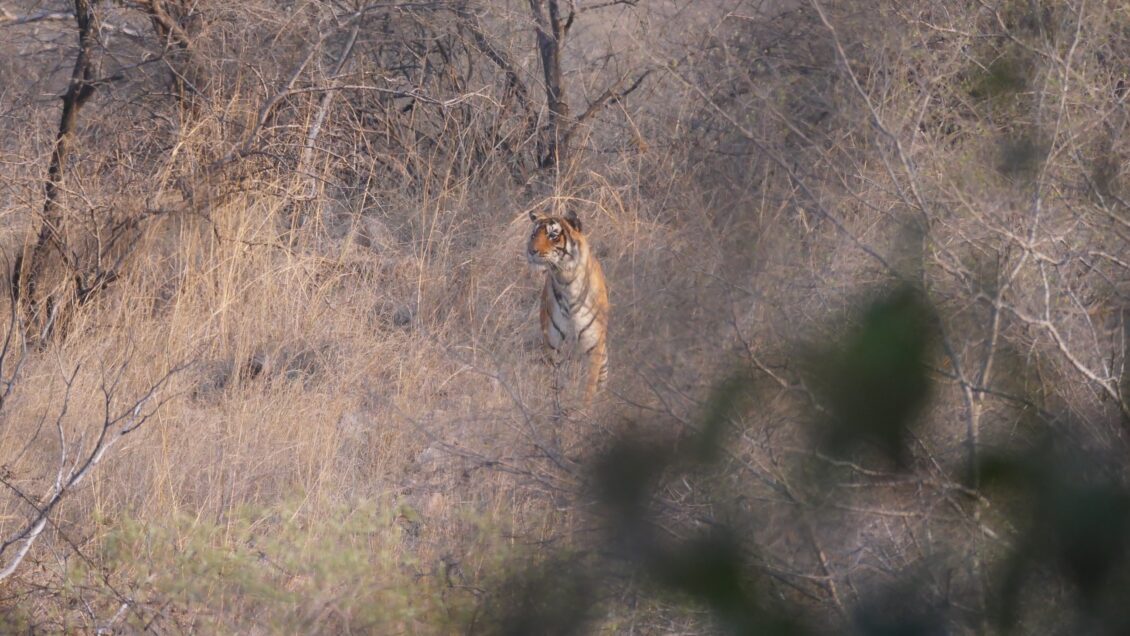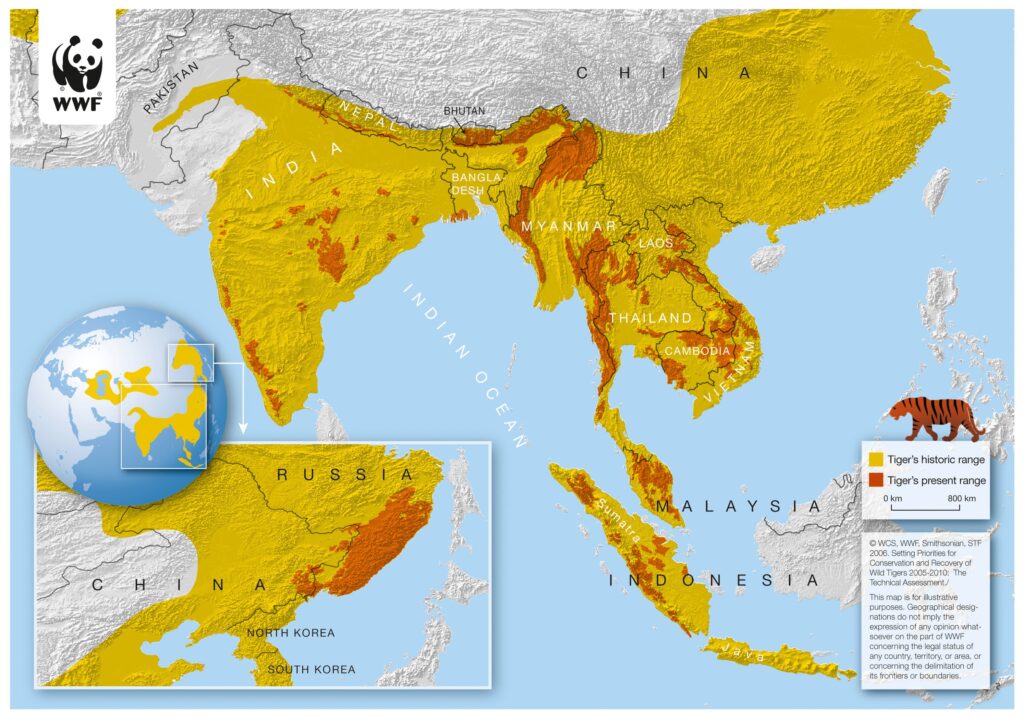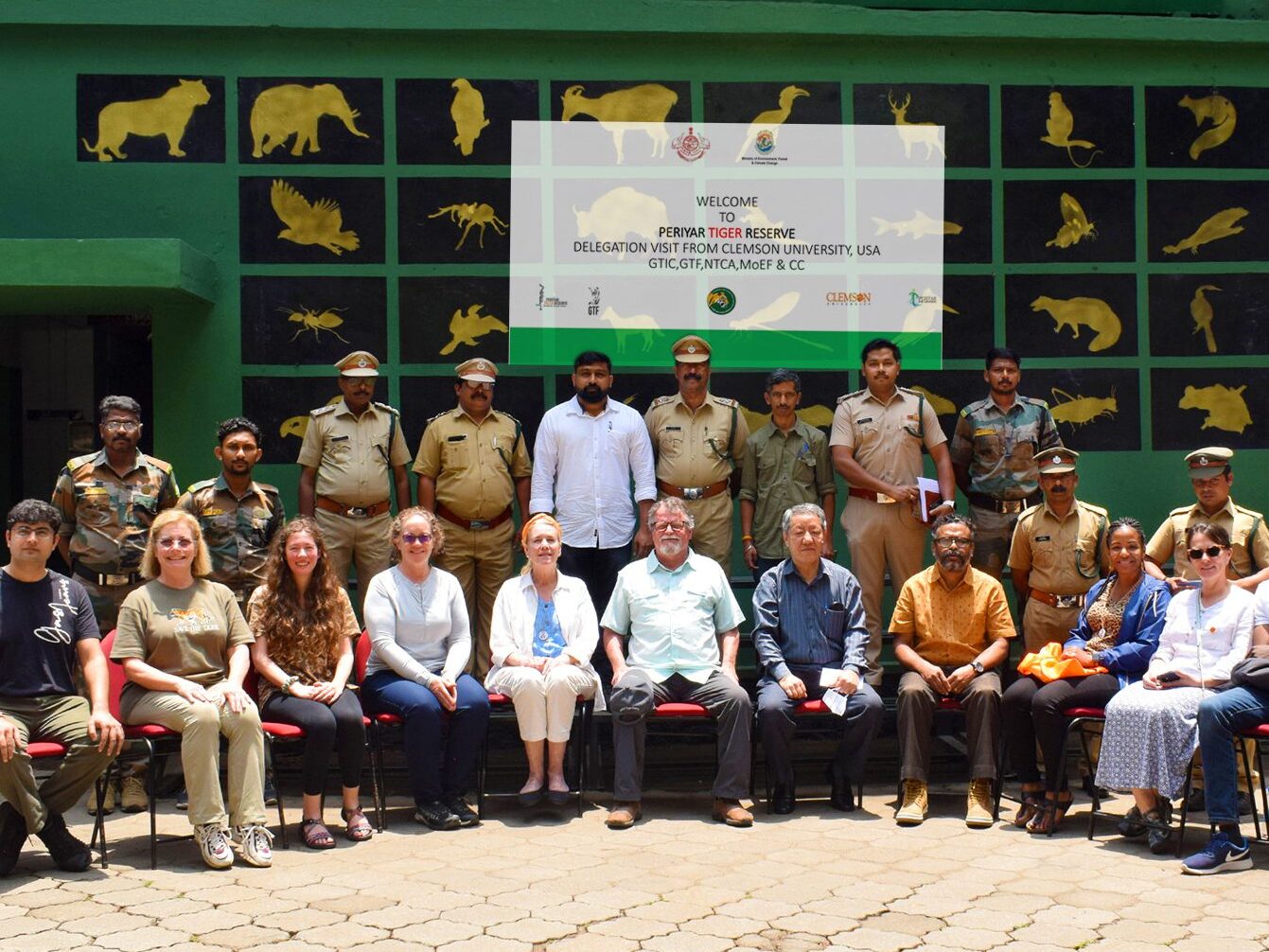
Various wildlife conservation organizations estimate only approximately 5,000 panthera tigris — tigers — remain in the wild. This alarming number equals a roughly 95 percent decrease in wild tigers in the past century or so. Endangered since 1986 due to multiple factors, including loss of habitat due to human activity as well as poaching to illegally sell tiger parts for use in traditional medicine, tiger numbers have dwindled dramatically in recent decades.

These devastating statistics prompted Clemson University President and member of the Global Tiger Initiative Council, Jim Clements, Ph.D. to act in 2017. He chartered the Tigers United University Consortium, a group of tiger mascot universities in the Southeastern U.S. comprised of Clemson University, Auburn University, Louisiana State University and the University of Missouri, to help save the remaining population of wild tigers. Clements appointed former Clemson Dean Brett Wright as director of Tigers United to connect key university stakeholders to the highest-level conservation officials in India, the world’s preeminent tiger range country where more than 70 percent of the world’s tigers roam.
On his most recent trip to India, Wright travelled with distinguished guest Wendy York, dean of the Wilbur O. and Ann Powers College of Business at Clemson University and honorary member of the Global Tiger Forum. After touring the country and speaking with government officials, York and Wright see a different path to success in tiger protection.
Business.
Poaching, at its core, is a business proposition. In areas with few economic opportunities, the black market sale of exotic, endangered animals presents a way to earn more money than the local economy can provide. In India, where tiger numbers are on the rise after decades of conservation efforts, community-based eco-development committees focus on a business solution: making poaching obsolete by creating jobs and providing ways to bring products to market.
“We can create a ring of protection around places like the Periyar Tiger Reserve by developing a true economic alternative to poaching,” explained York. “We met with businesspeople who gather wild honey, grow spices and create beautiful fabrics, but they need a way to get these goods to market.”
A business solution to protect endangered animals
Eco-development committees across India are making progress in creating opportunities and standardizing markets for local businesses. During her visit, York spoke with a variety of entrepreneurs, including Divya Khandal of Dhonk Crafts. Located in Ranthambore, an area known as the tiger capital of India and home of the Ranthambore National Park and Tiger Reserve, Dhonk Crafts works specifically to create “sustainable livelihood opportunities for the tigers’ neighbors by up-skilling them in traditional arts and crafts.”

After seeing the entrepreneurial spirit of Khandal and others who are determined to take control of their future and create a positive impact on tiger conservation, York brainstormed with Wright to create an outline for what she hopes will become a set of academic programs that create amazing student experiences and unique faculty research opportunities — all while strengthening the local economies that surround tiger reserves in India.
“It makes sense that, given a safer way to support their families, people will work to preserve the asset that brings a lot of tourists into the area to purchase their goods and services,” said York. “Ecotourism can contribute to the success of these local economies, but the animals have to thrive alongside the businesses in order for this to work.”
“Connecting Clemson’s business leader and, thus, classes of brilliant business students to this amazing landscape of people and wildlife in India will, we believe, produce profitable outcomes for both sides — an incredible and meaningful learning experience for Clemson students and numerous benefits for the area’s eco-development committees,” commented Wright.
York looks forward to supporting Wright as he and his team develop proposals for faculty and student programming that could include learning experiences, research opportunities and industry engagement — all designed to elevate endangered tigers and impact the economies that protect them.
“It’s a wonderful opportunity for our faculty and students to think more globally,” said York. “All animals play a part in the balance of nature, and we have a responsibility to be mindful of the impact of our actions.”
On her trip to India, York joined a cadre of Clemson University representatives, from Ph.D. students to faculty and administrators: Lori Dickes, associate professor and associate chair, Department of Political Science; Aby Séne-Harper, assistant professor, Department of Parks, Recreation and Tourism Management; Sarah White, professor and nursery Extension specialist, Department of Plant and Environmental Sciences; Cameron Smith, Ph.D. student, Department of Parks, Recreation and Tourism Management; Ifeanyi Ogbekene, Ph.D. student, Department of Political Science.
Small differences add up to big changes
For individuals who wish to make a difference, York recommends supporting the Tigers United University Consortium at Clemson University and the local businesses that will help to protect tigers and other endangered animals by providing a financial alternative to poaching.
“We have a real responsibility,” said York. “We each can make a small difference, even when we cannot travel to India.”

Government and business unite in tiger protection
In April 2023, Wendy York, dean of the Wilbur O. and Ann Powers College of Business and honorary member of the Global Tiger Forum, joined Clemson University representatives in visiting government officials, business owners and tiger conservationists in India as part of the Tigers United University Consortium. While in India, the group met with key government officials to work on issues surrounding the protection of the endangered tiger:
- Keshav Varma, CEO of the Global Tiger Initiative Council (GTIC)
- Dr. S.P. Yadav, Member-Secretary of National Tiger Conservation Authority (NTCA)
- Dr. Rajesh Gopal, Secretary-General of the Global Tiger Forum (GTF)
- Mohnish Kapoor, Head of Programmes and Partnerships, GTF
- V.P. Joy, Chief Secretary, Government of Kerala, Government Secretariat
- Suyog Patil, Deputy Director, Periyar East Division
- P.P. Pramod, Chief Conservator of Forests & Field Director, Periayr Tiger Reserve
- Sedu Ram Yadav, Field Director, Ranthambore Tiger Reserve
Get in touch and we will connect you with the author or another expert.
Or email us at news@clemson.edu
